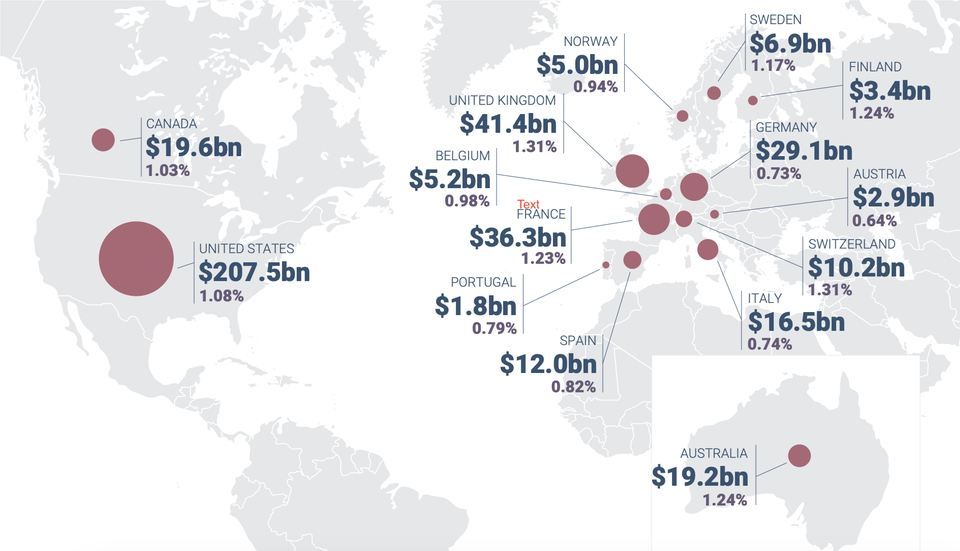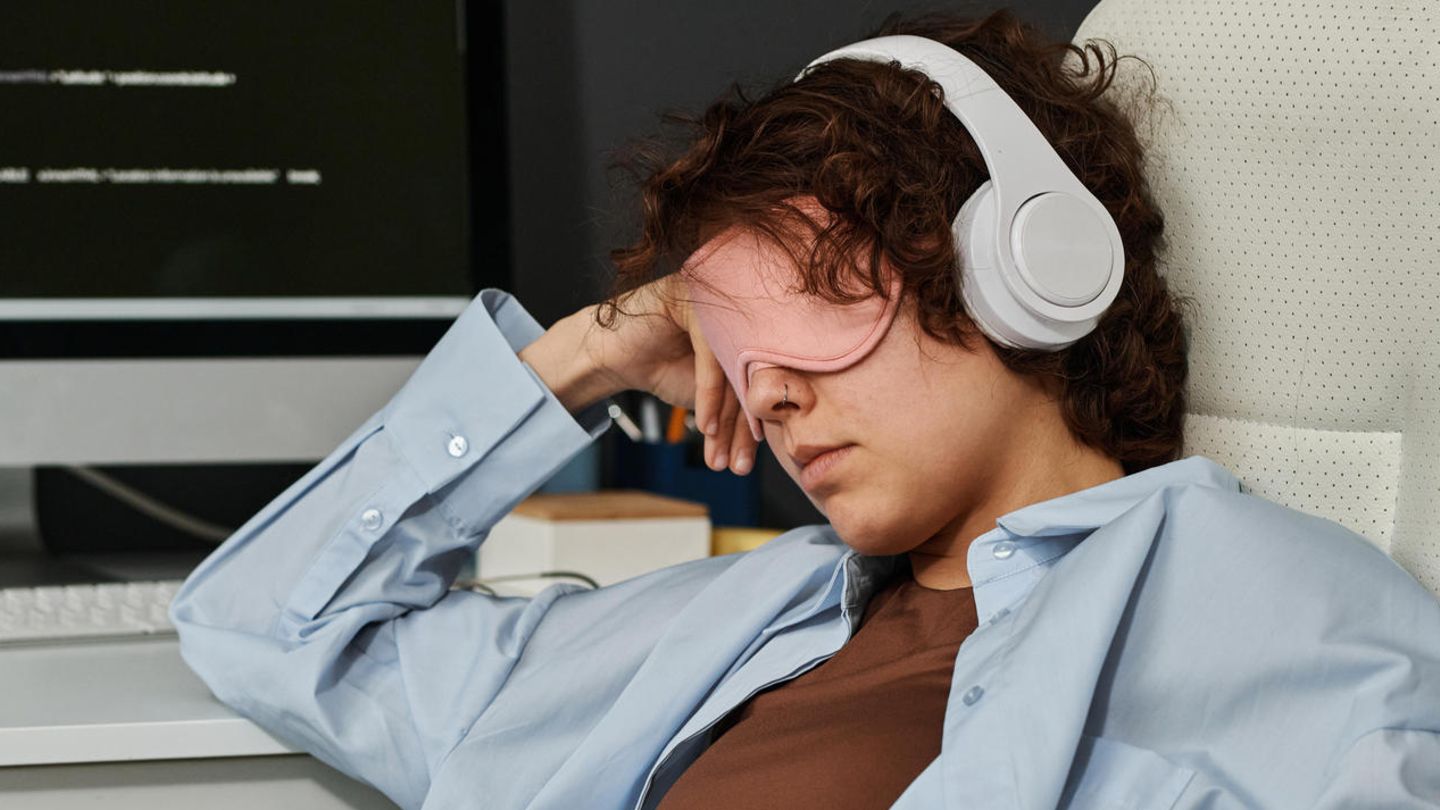Taking an afternoon nap at work is frowned upon in Germany: the credo is that anyone who sleeps is not performing well. Lack of sleep can even cost employers money – which is why some companies now even encourage napping.
This article is adapted from the business magazine Capital and is available here for ten days. Afterwards it will only be available to read at again. Capital belongs like that star to RTL Germany.
Many famous and successful people are said to have only needed a few hours of sleep per night, such as British Prime Minister Margaret Thatcher, the philosopher Voltaire and the composer Wolfgang Amadeus Mozart. And even today, managers still consider it a sign of strength if they get by on little sleep, true to the motto: Those who sleep little can perform better.
But this assumption is wrong, as sleep research has long since discovered. When you lack sleep, your concentration decreases. Good sleep, however, can increase performance and well-being. In times of constant exhaustion and modern work culture, sleeping is also becoming an issue at work. More than half of Germans would like to take a nap, and companies have realized that they can definitely benefit from this. At least some. Some German companies also want to enable napping at work.
Sleep disorders cost the US $200 billion
In Japan, napping has long been common practice, or more precisely: a form of superficial short sleep. It is called “Inemuri”, which is a combination of the words “to be present” and “sleep”. “Inemuri” is not only allowed during breaks on the park bench, but also in conferences. That would probably cause great outrage in this country. “In my experience, hardly anyone would dare to say, ‘I could use a nap right now,'” Tina Ruseva tells Capital. She is co-founder of the Federal New Work Association, which is committed to transforming the world of work. “Even though everyone is lying pretty exhausted right now, we are still a meritocracy. It’s about how committed and motivated you are and how much you deserve to be in your position.”
Sleep could even promote the necessary motivation and performance because it has a major influence on our cognitive abilities. Those who consistently don’t sleep enough are less productive during the day, take longer to complete tasks and are more likely to make mistakes. A study by the think tank Rand Europe on the effects of chronic sleep disorders has shown that they can lead to an average loss of working time of over 50 days – and therefore cost a lot of money. For the gross domestic product of the USA, for example, the reduced working hours mean a loss of around one percent per year and therefore more than 200 billion US dollars. For Germany, the study calculates a loss of 0.73 percent and around $30 billion.

An employer should therefore be interested in ensuring that their employees sleep well – so that they remain healthy in the long term. Finally, sleep can also prevent diseases such as diabetes and depression and reduce the risk of heart attack. During deep sleep, experiences are processed, new synapses are formed in the brain and energy reserves are replenished.
Where is there an “Official Nap Time”?
The Telekom subsidiary T-Systems launched an initiative in 2020 that was intended to increase employees’ awareness of how to deal with sleep in a targeted manner. Among other things, the company wanted to improve the personal sleep hygiene of its employees with sleep consultants and a bedroom check to identify disruptive factors. According to the company, T-Systems’ health rate has been over 90 percent for several years.
Others rely on power naps at work – a short, restful sleep. The chemical giant BASF from Ludwigshafen has offered its employees courses in which they can learn how to power nap.
Bosch also allows its employees at the development site in Abstatt near Heilbronn to get some real rest. The employees there would work on highly complex tasks that required a lot of concentration, Bosch wrote in response to Capital’s request. Therefore, they wanted to create a balance to relax and recharge. The company has set up a so-called time-out zone with massage chairs and sound waves. “The special thing about the sound waves is that the music that employees listen to through headphones is transmitted to the body via the lying surfaces,” writes Bosch. “This means that relaxation is possible within a very short time.” The feedback on the time-out zone is positive.
However, the service can be used outside of working hours and employees must clock out beforehand. The Indian interior design platform Wakefit, on the other hand, has officially given its employees the right to sleep half an hour a day. From 2 p.m. to 2:30 p.m. all calendars are blocked for “Official Nap Time.”
Air mattresses do not have to be allowed
In Germany, sleeping during working hours is generally not legally permitted – anyone who does so will face a warning and, if this happens again, dismissal without notice. “During the break, however, the employee is allowed to do whatever he wants,” says labor lawyer Michael Fuhlrott to Capital. “So a nap on the chair in the break room during the break is permissible.” However, the employer is not obliged to provide special “sleeping rooms”. “The employee can also be prohibited from laying out or unpacking their own sleeping utensils in their office,” says Fuhlrott. Bring an air mattress, inflate it and lay it out? It is not that easy.
Ruseva from the New Work Association is committed to ensuring that Germany relaxes its regulations and that employees show greater flexibility. “Anyone who has ever been sleep deprived knows that they are useless,” says Ruseva. “If you could take a nap, you would be more productive and motivated.” In addition, occupational safety can be better guaranteed, not only for assembly line workers, but also at the desk. “It can easily happen that I write passwords on a piece of paper somewhere because I’m tired or I don’t secure something properly. That’s just as relevant.”
Source: Stern




